A sampling of some artistic endeavors including plays and comic strips that credit, portray, or otherwise make reference to John Mack.
Aliens, Ahoy! A Meeting of Abductees, U.F.O. Buffs, and the Curious: A True Story
by Roz Chast
Roz Chast is an award-winning cartoonist and illustrator whose work has appeared in The New Yorker and other magazines from the late 1970s onwards. Though best known for her one-panel bits, Chast devoted a four-page full-color spread to her portrayal of Dr John Mack and the assorted guests and audience members who attended Mack’s “Star Wisdom conference” (held in Newtonville, MA) in 1999. (We can only present a small excerpt here due to copyright restrictions).
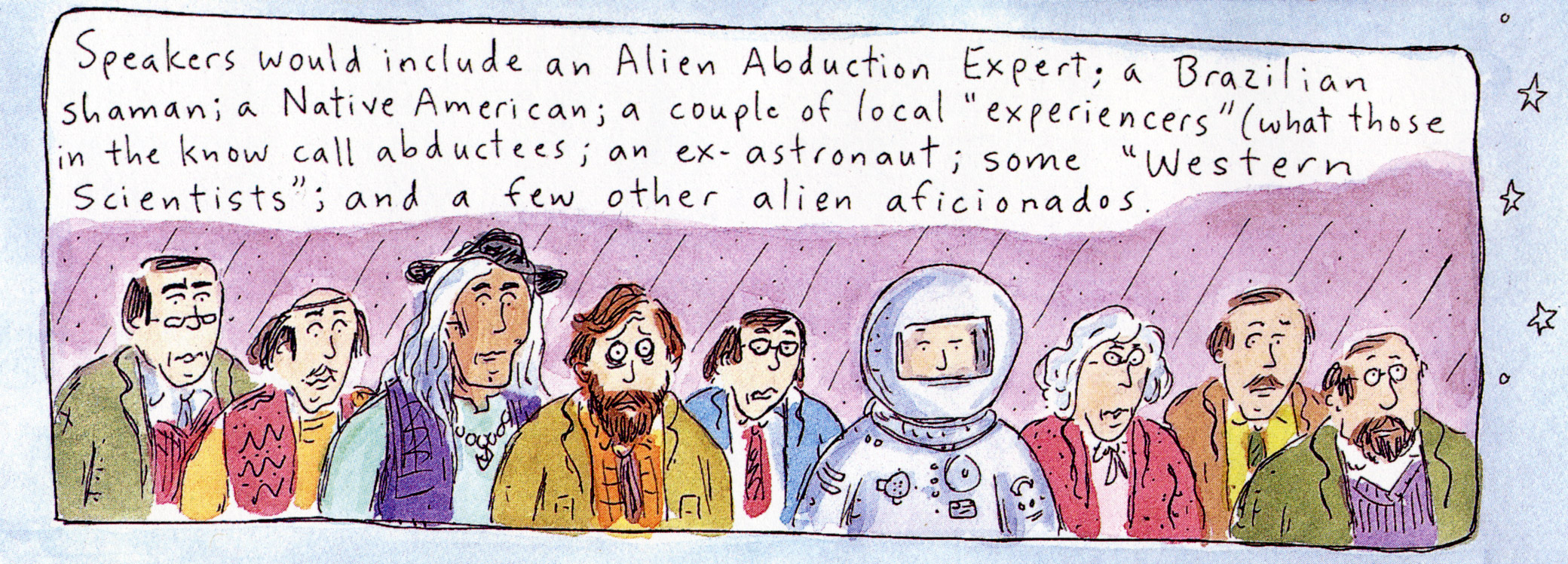
Though no one is explicitly named, you can recognize Dr Mack, Brazilian Shaman Bernardo Peixoto, Sequoyah Trueblood (“resembles Johnny Cash,” Chast notes), one of the “experiencers” from John Mack’s book Passport to the Cosmos, Dr Edgar Mitchell (still wearing his silver space suit in Chast’s vision), and others.
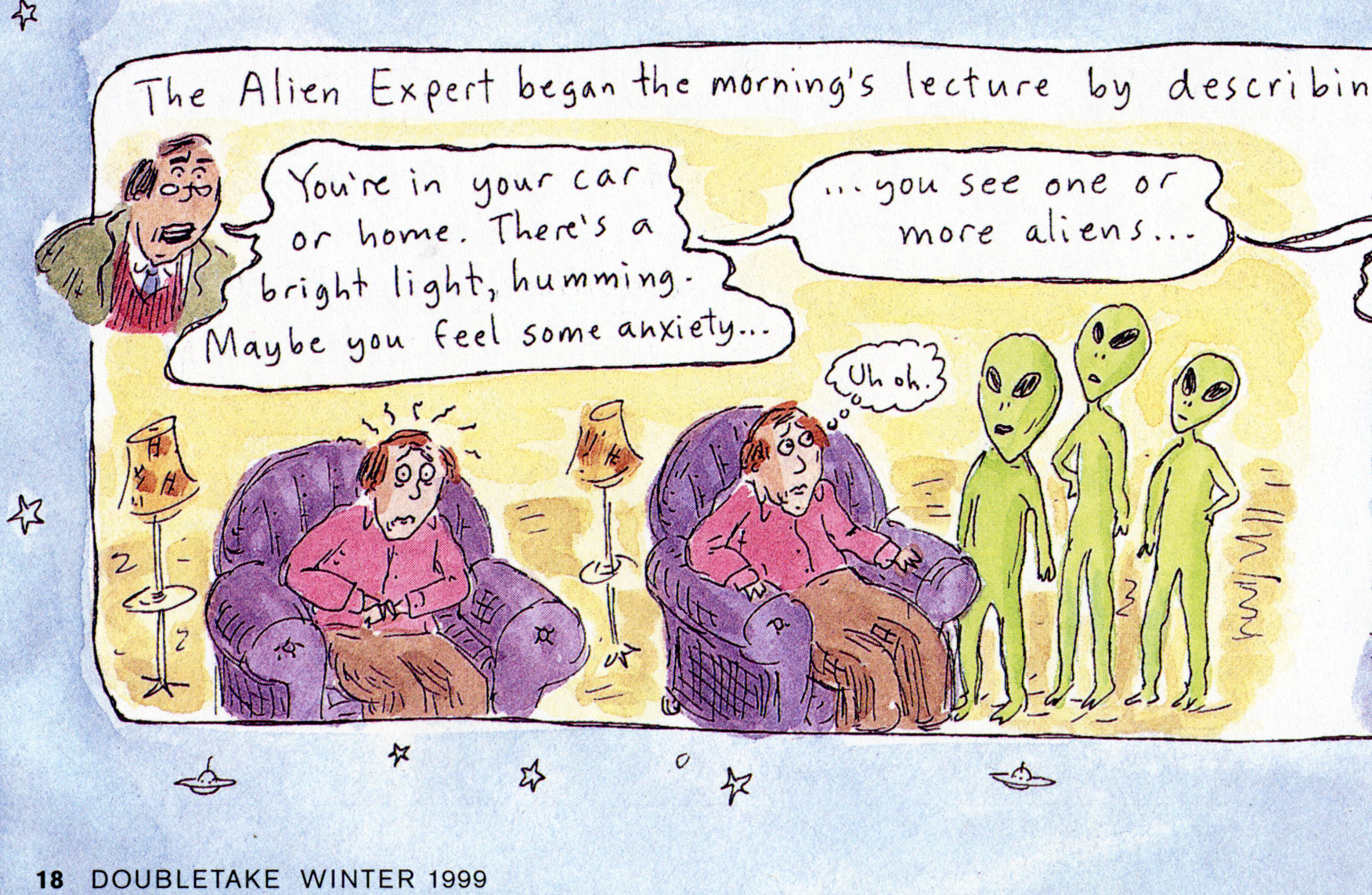
Aliens, Ahoy! first ran in DoubleTake (an art magazine associated with Duke University), in the Winter 1999 issue. It was later reprinted in one of Chast’s books of collected works, Theories of Everything: Selected, Collected, Health-Inspected Cartoons by Roz Chast 1978-2006 (2008, Bloomsbury USA, ISBN: 9781596915404).

Full-size image not available due to copyright restrictions; buy the book Theories of Everything.
The Unfortunates
by William Baer
William Baer’s book of poems, The Unfortunates (1997), “is a unique collection of poetic portraits written in blank verse octaves,” says the Midwest Book Review. “These poems introduce a wide range of unfortunate inhabitants of the contemporary landscape: a young man attracted to cults, a woman working for a psychic hotline, a housebreaker, a disgruntled librarian, a con artist, a pyrophile, and many more. Each poem has an individual tale to tell, and the sum total of the collection provides a powerful commentary on contemporary life in America.”
John Mack appears as a character in William Baer’s poem, Aliens:
ALIENS
In, then out, of deep hypnotic regression,
she told her sympathetic Harvard research prof
about the ship’s white, sterile room
in which they’d probed her naked body as
she lay out flat and perfectly immobile
in order to assist the world
— her Ivy League psychiatrist explained —
to reach a higher level of consciousness.
But never did she reveal — she recollected later,
driving past that selfish bastard Bob’s
new condo, with a condescending sneer —
that one of her abductors had attempted
to impregnate her, and just how good it felt,
both then and now, to be more special
than anyone else on earth — who’d had the world’s
(the galaxy’s) most extraordinary lover.
“The Girl Who Was Raised By Cats”
by Nicole Hollander
The creator of the popular syndicated cartoon strip “Sylvia” explores the devilishly quirky personality traits of pet cats. “The Girl Who Was Raised By Cats” was originally presented in the book: Everything Here Is Mine: An Unhelpful Guide to Cat Behavior (Avon Books, 2000). Later reprinted in the book Cats With Attitude (Gramercy, 2002).
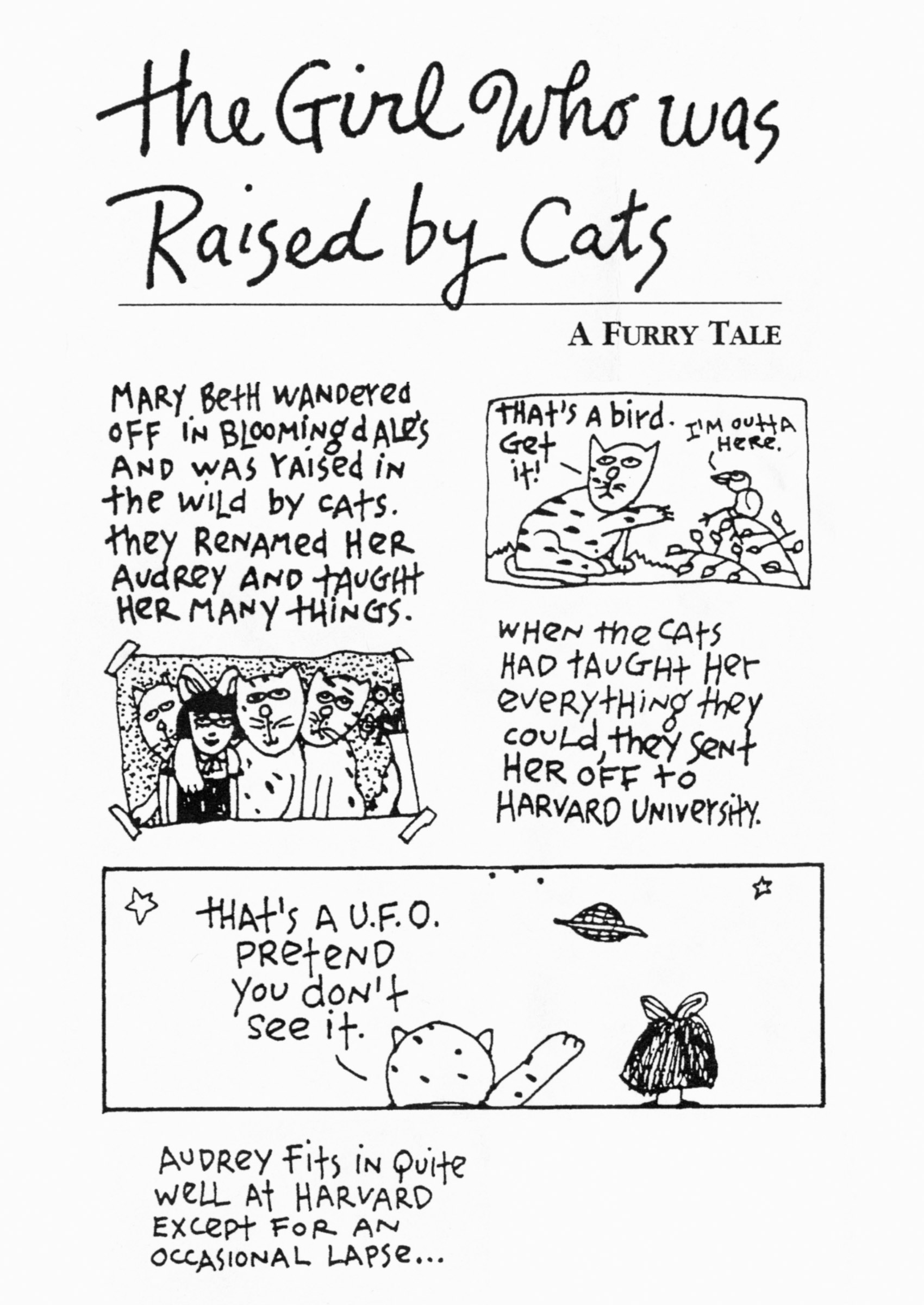
In this particular panel, young Audrey is given advice by her cats on how best to blend in at Harvard if you see a UFO. This appears to be a reference to how Harvard responded to John Mack’s study of alien contact. (John Mack’s research was met with an unprecedented response by the Dean of Harvard Medical School. A secret committee was appointed in May 1994 to investigate how Dr Mack may have erred, if he erred at all, in his clinical care of people who reported having alien encounters.)
Doonesbury
by Garry Trudeau
Although we have not tracked down the strip, Dr Mack told an interviewer in May 1995, “…this is kind of funny. There’s been a Doonesbury cartoon series which depicted some psychiatrist, hypnotist, possibly invidiously modeled on me, which has this hypnotist leading this poor patient to believe that they’ve been abducted by aliens. And I want to be very clear. I do not do that. I simply ask questions. Like, ‘what are you feeling? What’s going on now? Where are you? What’s happening?’ Just the vaguest questions to keep the account free and as unlittered of anything to do with me as I can.”
Space
A Play by Tina Landau
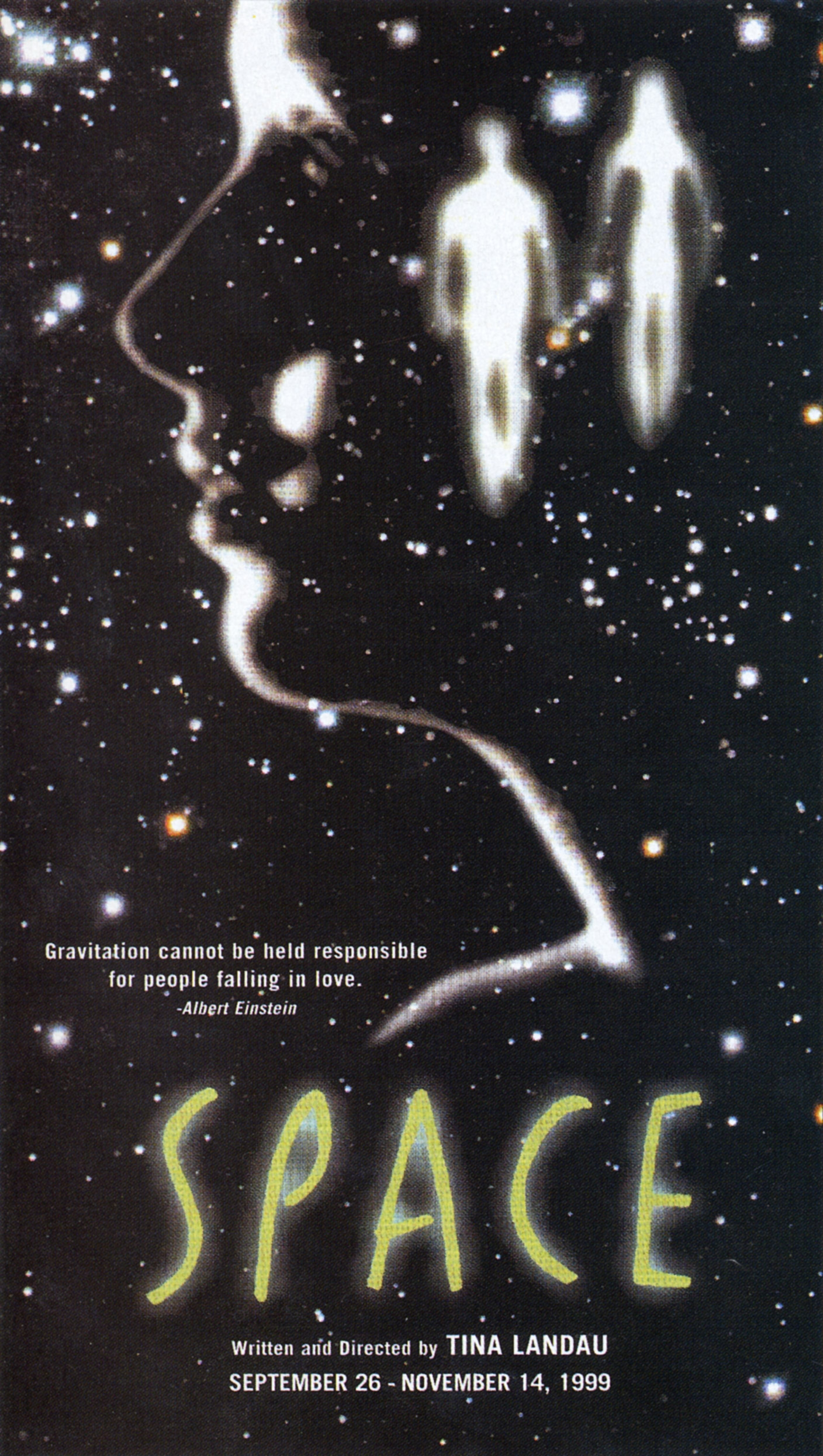
In the 1999 play Space, set in a university in December of present day, “a brilliant scientist finds his life turned upside down and his rational beliefs shaken when he is approached by three patients who report similar symptoms of alien abduction. When the play premiered at Chicago’s Steppenwolf Theatre Company, Time magazine called it ‘a magical mystery tour, packed with inventive sound and lighting effects, that explores cosmic questions of mankind’s place in the universe while staying grounded in the spiritual quest of one vulnerable man.’”
In an interview presented in the theatre booklet, Tina Landau explains her inspiration for Space: “It began one night when I was visiting a friend in the country and I looked up at the sky; having grown up in New York and Los Angeles I had never actually seen the full night sky before. I became enamored of star gazing, When I was invited to American Repertory Theatre to do a workshop in 1994, which became the beginning of developing this play, the word that came tumbling out of my mouth was space. Around that time, I heard the Harvard psychiatrist Dr. John E. Mack speak about a personal paradigm shift he was going through as he investigated the phenomenon of alien abductions. What intruiged me was not what he was investigating so much as the fact he was willing to risk his reputation in the name of something he didn’t understand. He was willing to go to a place of doubt, which paralleled a personal journey I was on myself. I felt like I was at the tip of two unknown continents — science and faith.”
The lead character of Dr. Allan Saunders is not based exclusively on Dr. John Mack; the theatre booklet notes that Space was inspired by and draws on the writings of a range of thinkers including Gaston Bachelard, L. Frank Baum, Hal Boyle, George Bradley, Joseph Campbell, Lewis Carroll, Arthur C. Clarke, Dante, Rene Daumal, Charles Dickens, Albert Einstein, Gail Goodwin, Timothy Ferris, Richard Feynman, Krishnamurti, John E. Mack, Portia Nelson, Chet Raymo, Carl Sagan, Jill Tarter, John Wooden, and others.
For more information see: Russo, Francine. “The Outer Limits: Tina Landau’s ‘Space’ Invaders”. The Village Voice, November 24 – 30, 1999, and Farr, Jory. “Cosmic questioning: Tina Landau’s play ‘Space’ is not just about UFOs but is an extended meditation on the convergence of myth and reality.” The Press-Enterprise (Riverside CA), October 03, 1999, p. G18
Intruders (TV movie)
Directed by Dan Curtis (“Dark Shadows”),
written by Barry Oringer and Tracy Tormé
In the 1992 television movie Intruders, the character of psychiatrist “Dr. Neil Chase” (played by actor Richard Crenna) is a composite of researcher Budd Hopkins and Dr. Mack; Crenna visited with Mack in preparation for the role. Hopkins’ book Intruders inspired the teleplay. Tormé also visited experiencers at Dr. Mack’s organization in April 1991, and actress Daphene Ashbrook consulted with some as well.
Synopsis courtesy of Paramount Home Entertainment: “When respected psychiatrist Dr. Neil Chase (Richard Crenna) begins treating Lesly Hahn (Daphne Ashbrook) for paralyzing flashbacks, memory loss and manic paranoia, rational explanations just don’t seem to fit. Meanwhile Nebraska housewife Mary Wilkes (Mare Winningham) suffers the same symptoms. And when Dr. Chase meets her and delves deeper into both cases, the similarities in their nightmarish stories lead the former skeptic into the mystifying realm of UFO abductions. Is there indeed an alien presence at work here, and if so, have these visitors come to save an old world…or start a new one?”
The Abduction Project
A Play by Stephane Gilman and Kristin Tanzer of Collision Theory
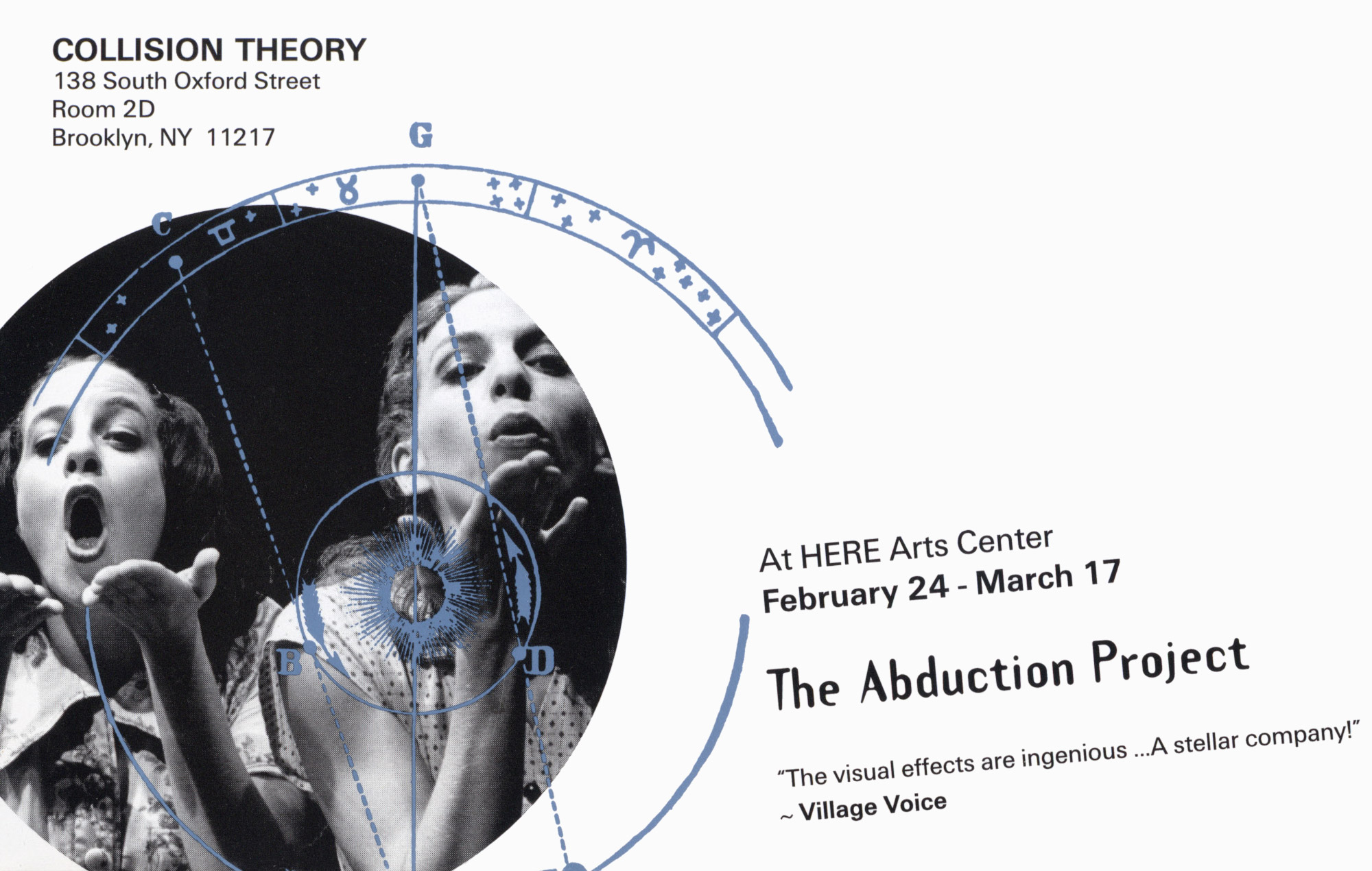
Note: This play, staged in 2000, does not include a depiction of Dr. Mack, but we mention it because directors Gilman and Tanzer interviewed experiencers associated with his organization as part of their research process.
Set against the backdrop of 1950’s American suburbia and the “ideal” nuclear family, The Abduction Project explores the nature of domesticity (and its effects on the brain; the semi-permeable line between dream and reality; and the complex (and little understood) nature of memory. With this project, Collision Theory leaps beyond the familiar, the tangible, and the scientifically observable into the surreal landscapes of outer space, hyper-space and the vast inner spaces that comprise the human mind.
As with each of Collision Theory’s productions, The Abduction Project is based in part on interviews. In this instance, we conducted extensive interviews with individuals who report having experienced extraterrestrial abductions. Our interviewees include members of S.P.A.C.E. (Search Project for Aspects of Close Encounters; New York City) and IF (Intruders Foundation; New York City), as well as the Cambridge, Massachusetts-based PEER (Program for Extraordinary Experience Research) run by the Pulitzer-winning author Dr. John Mack. From that the 13-member company use, as Tanzer puts it, “a filtering process to find the physical language of the piece.”
The production takes place in the 1950’s, when Americans were worrying about Roswell and the threat of nuclear war loomed over the country. Conceived and directed by Stephanie Gilman and Tanzer, the theatrical work probes the mysteries of alien abductions as well as domesticity and violence.
Collision Theory is an award-winning ensemble theater company that creates and produces innovative, adventurous physical theater using the company’s own highly developed choreographic style.
“The Abduction Project takes on both the 1950’s father- knows- best family and alien abduction – to a rock ‘n’ roll beat. Performed in the company’s signature style of stylized movement, visual tableaux, musical cacophony and verbal playfulness. . . [The Abduction Project] is an arresting, comical-surreal dreamscape.” —The Village Voice
My Favorite Alien
A Play by Doug Banasky
Description courtesy of the Wisconsin State Journal, January 8, 1997, p. 8D
PLAYWRIGHT PENS ‘ALIEN’ SCRIPT AFTER A CLOSE ENCOUNTER
By Nadine Goff
A close encounter in Brazil inspired playwright Doug Banasky to write “My Favorite Alien,” a comedy about alien abduction and the end of the world at the millennium, premiering Friday at Broom Street Theater.
Banasky’s encounter was not with an alien, but with Dr. John Mack, a Harvard psychiatrist and author of the controversial book, “Abduction: Human Encounters with Aliens.”
Last summer, Banasky, who has a master’s degree in social work from UW-Madison and has spent seven years as a hospice and social worker, traveled to Brazil to attend a conference sponsored by the International Transpersonal Association. He got to know Mack when they both joined a post-conference expedition to visit an ecological community in the Brazilian rain forest.
Mack’s book tried to legitimize and recognize the experiences of people who claim to have been abducted by aliens, says Banasky. The “evidence” for these abductions is, however, all internal, assuming form as memories and post-traumatic stress.
Mack won a Pulitzer Prize in 1977 for his biography of T.E. Lawrence, but “this work he’s doing now has earned him scorn and ridicule,” says Banasky.
“I’m intrigued by the connection between abductions and the belief in an impending environmental crisis,” says Banasky, who recently moved back to Madison from Seattle specifically to do work at Broom Street.
“’My Favorite Alien’ poses the question: ‘What if there were extraterrestrials trying to break through into our consciousness — would anyone believe?’” says Banasky. “I’m by nature fairly gullible, so I come from the point of view that wonders what would happen if this were true.”
The play shows at 8 p.m. Fridays-Sundays through Feb. 16 at Broom Street Theater, 1119 Williamson St. Tickets are $7 at the door.
Profilage
A French television series
In the French TV Show Profilage, John Mack is quoted by the character of Chloé, in the episode “OVNI” (“UFO”) (episode 8 of season 6, aired November 26, 2015, written by Maxime Berthemy, directed by Simon Astier).
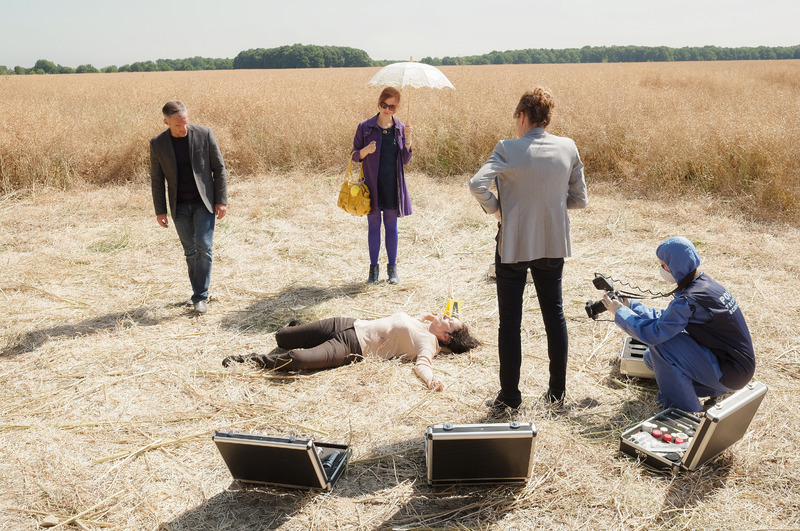
Episode synopsis: A woman’s lifeless body is discovered in a field. All indications are that she fell several metres. As Chloe and Rocher arrive on the scene, a young girl in a nightgown arrives. She’s in shock.